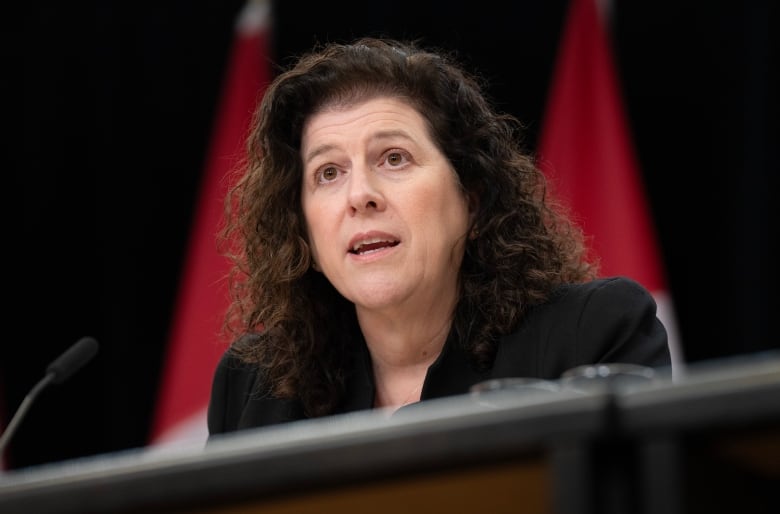
The House of Commons has been at a standstill for more than a week as a dispute over releasing documents related to the government’s failed green technology fund continues to gum up the works.
The Conservatives are trying to force the government to release all documents related to the now-defunct Sustainable Development Technology Canada (SDTC), a federally funded arm’s-length body that was launched in 2021 to hand out taxpayer money to promising clean tech firms.
The Conservatives want the RCMP to investigate alleged wrongdoing at the SDTC and say police need these documents to do so.
The Liberals, meanwhile, say the government has released some of the documents already and the question of whether to disclose more should be studied further by a Commons committee.
They also say it would be unconstitutional for the government to produce documents for MPs to hand over to police without going through the appropriate legal channels.
In the meantime, as MPs squabble over what should or should not be released, Parliament is getting almost nothing done.
How did the SDTC get into trouble?
The SDTC’s past chair, Annette Verschuren, has acknowledged she participated in approving more than $200,000 in grants to her own company.
But the problems at SDTC went much deeper. Back in June, Auditor General Karen Hogan reported that the organization had violated its conflict of interest policies 90 times, awarded $59 million to 10 projects that were not eligible and frequently overstated the environmental benefits of the projects it funded.

She found “significant lapses” in the $1-billion fund’s governance.
The SDTC was so poorly managed and beset by scandal that Industry Minister Francois-Philippe Champagne shut it down earlier this year and rejigged the government’s strategy for funding technology to help fight climate change.
How did we get to this impasse in the Commons?
In June, the Conservatives introduced a motion demanding that the government turn over all SDTC documents to the Commons law clerk within 30 days. The clerk, in turn, would turn over those files to the RCMP for a possible criminal investigation into this troubled fund.
MPs passed the motion before rising for the summer break.
Not all of the government’s documents were handed over to the clerk by the specified deadline.
That led Conservative MP Andrew Scheer, the party’s House leader, to claim in September that parliamentary privilege had been violated because the government was not complying with a clear directive approved by MPs.
Speaker Greg Fergus agreed the documents should be produced, even if it would set an unusual precedent because MPs are requesting documents in order to hand them over to a third party — in this case, the police.
“The House has the undoubted right to order the production of any and all documents from any entity or individual it deems necessary to carry out its duties,” Fergus said.
“The House has clearly ordered the production of certain documents, and that order has clearly not been fully complied with.”
Fergus said he “cannot come to any other conclusion but to find that a prima facie question of privilege has been established.”
Why does this matter?
Since Fergus issued that ruling, MPs have been debating a motion that would send the matter to the Commons procedure committee for further study.
Privilege motions like this one take precedence over virtually all other parliamentary business, such as government orders and private member’s business, although question period has gone ahead as usual.
Since the debate began, the government hasn’t been able to bring forward new legislation or pass bills already before MPs.
The government has rescheduled a vote on changes to the capital gains tax three times, and each time it has been overtaken by debate about the documents.
Similarly, long-awaited bills on clean drinking water for First Nations and citizenship rights for Canadians born abroad have not moved forward.
In an interview with CBC News last week, Scheer said the Conservatives will hold up the Commons until the government agrees to hand over all of its unredacted SDTC-related documents to the Commons clerk so he can then provide them to the police.
“We believe the RCMP should have all the documents, all the information for possible criminal charges,” he said. “We expect the government to do that.”
When asked how long this could drag on, Scheer said it’s up to the government.
“It’s really a question of how long the Liberals want to keep the House of Commons ground to a halt rather than simply hand over the documents,” he said.
He said the Conservatives want “literally everything handed over,” and if that doesn’t happen it tells him “the government is trying to hide something.”
Conservative Leader Pierre Poilievre said Monday it’s really the Liberals who are holding everything up. “The government must hand over evidence to the police,” he said.
What’s the government saying?
The Liberal government, meanwhile, maintains this Conservative effort is a stunt and Conservative MPs should just agree to pass the privilege motion and send the matter to the procedure committee.
When asked why the government doesn’t give the Conservatives what they want to bring this dispute to a close, government House leader Karina Gould said producing documents to be passed on to the police would violate the Charter of Rights and Freedoms.

“The Conservative Party of Canada has put forward a motion that would blur the lines of independence between the legislative and judicial branches,” Gould said last week.
“This is something that every single Canadian should be alarmed about. They’re trying to get around judicial oversight and trample on the Charter. It’s not something that should happen in a democracy. Canadians need to be aware.”
For evidence to hold up in court, police have to follow the proper protocols.
When it comes to documents, police normally have to get a production order from a judge that compels a person or organization to disclose records to law enforcement.
That’s why Hogan herself has said she doesn’t want the information she gathered as AG to be given to the police outside the normal channels. She said so in a letter to MPs this summer.
As Liberal and Conservative MPs slugged it out in the Commons, RCMP Commissioner Mike Duheme said last week there are already “ongoing investigations” of SDTC and the RCMP “did receive the documents” that could be used for a probe.
It’s not clear which documents the RCMP has; a spokesperson for the force said the RCMP could not comment further.
What’s next?
The Liberals could produce what the Conservatives want, or the Tories could agree to let the whole matter go to committee.
The Liberals also could try to force an end to the debate through a parliamentary process called closure — something that would require either Bloc or NDP support.
New Democrats have said they want to study the issue further at committee. They’ve accused the Conservatives of filibustering the process and needlessly dragging out the debate.
“We patiently await the day when Conservatives stop enjoying the sounds of their own voices,” said NDP MP Alistair MacGregor.
“When will Conservatives allow us to execute a vote on this so we can get the business going and get this investigation underway?”